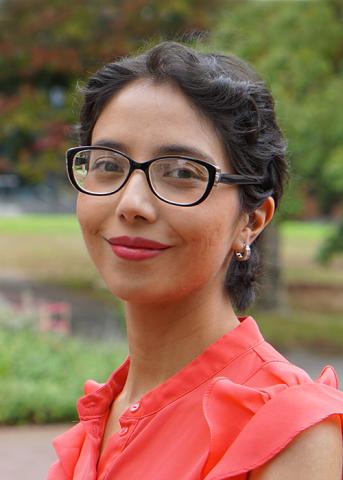What influenced you to pursue a degree in nutritional sciences?
I have always been interested in nutrition. My undergraduate degree was also focused on nutrition, so I wanted to continue in the same area to deepen my knowledge and to gain more public health insight. Back in Mexico, the focus is almost entirely in individually-focused diets, so I wanted to diverge a bit from that.
Why did you choose UW?
There were many reasons why I chose this university. Perhaps the most important one was how invested it was with its community. I think that all universities should give back. The University of Washington has formed many partnerships and a lot of the students at all levels are involved with the community in some way or another. Giving back is a value that continues to be at the top of my priorities. Other reasons why I chose the UW include the great MPH curriculum, the focus on social determinants of health and its large international student body.
What kind of research or internship are you doing?
I am currently working with Dr. Marian Neuhouser on a pilot randomized dietary intervention. This pilot study compared a traditional Mexican Diet against the Dietary Guidelines for Americans (DGA), specifically in Mexican-descent women living in Washington. I am very excited about this project as I was born and raised a Mexican woman.
How would you describe the benefits of your research, or how it may potentially impact public health?
The work that Dr. Neuhouser has started, and that I am continuing, will hopefully help improve the health outcomes of this specific population in the future. Although the Dietary Guidelines are flexible and provide a great guide for any person, recommendations for other traditional dietary patterns are not included, such as one that uses Mexican ingredients. I see this research helping provide a strong evidence base so that this pattern could be recommended and adopted more. This would potentially result in improved health outcomes for Mexican population. Perhaps recommending traditional dietary patterns can result in greater adherence and better health when compared with the DGAs.
What are your future goals?
I would love to continue doing nutritional research that has public health impact. I would love to continue in academia and to give back to students via teaching. I am also very interested in continuing with my own education and will pursue a PhD in the future.
What extracurricular activities do you enjoy?
Being in extracurricular activities this past year and a half has been a bit challenging, but I still managed to join a registered student organization (RSO) called Project Indoor Farming (Project IF). In this RSO, we focus on promoting hydroponics and other non-traditional forms of agriculture. I also enjoy participating in events set up by an organization for international students, FIUTS.
What do you like most about living in Seattle?
It is green all year long, and all neighborhoods have their own charm. My hometown tends to be dry and temperate, which means that Seattle and all the Pacific Northwest are extremely green in comparison. It has also been amazing looking at all the different seasons, especially on walks. I am also very thankful about the public transportation system, I can get anywhere.
Tell us a fun fact about yourself
I have a farm subscription service that works like a CSA, and this is how I incentivize myself eat a wide variety of produce. It also gives me the opportunity to try new recipes that I would have never tried otherwise.
What advice would you give a student who is considering graduate study with the UW Nutritional Sciences program?
To be ready to learn a lot. I came here with a previous nutrition degree, and I still received plenty of new information. To me, this means the quality of the program is great. It means that no matter what your background is, you will need to invest a lot of time into the program. The pay-off is 100% worth it and I would not have chosen any other program.

